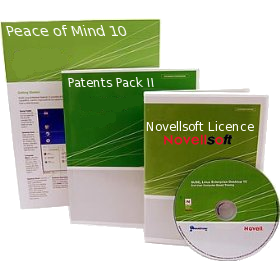

So getting back on track(ish) how many of you guys and gals use SLE professionally? It could be either SLES or SLED. If you do use a SLE product do you partake in the openSUSE community professionally or is it purely part of your undying love for the Geeko? If you don't is there a particular reason why not, anything blocking you joining in, or do you just choose not to? If you do participate as part of your job, what issues do you encounter, what could be improved etc?
“Novell is still creating its own kernel, which one reader of ours suspects is hard for competitors to access (for licensing reasons).”We have already mentioned SP1 of SLE* 11, just the other day in fact (here is the press release and copies). Based on this report, Novell is still creating its own kernel, which one reader of ours suspects is hard for competitors to access (for licensing reasons).
The VAR Guy is uploading promotional Novell videos about this latest service pack as he has a special relationship with Novell and some Novell partners synchronise their announcements so as to increase Novell's "SP1" hype (Novell and its allies are still uploading videos).
LINBIT and Novell offer Enterprise clients a stable base for their businesses by delivering well-tested, enterprise-grade Open Source solution stacks. SUSE Linux Enterprise 11 contains a complete and stable cluster stack, based on Pacemaker, which is now better than ever.
Novell has introduced a significant update for its Suse Linux Enteprise 11 software, Service Pack 1, which includes the integration of components for Microsoft's Hyper-V hypervisor.
BMW is using the Xen para virtualisation tool in SuSE Linux Enterprise Server to run test and development production systems. The company has deployed Xen to replace its ageing PA-Risc, Sun Sparc and IBM Power 4/5 Unix server hardware with industry-standard PC servers.